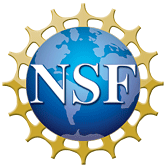 |
Events
|
There are no upcoming events posted. Please check back later. |
Networks
Description
This interdisciplinary research-based community of practice conducts empirical research on bilingualism and second language acquisition. We have a broad range of content expertise and use a wide variety of data collection methods and analytic techniques. Our research and training programs have been supported by the National Institutes of Health, the National Science Foundation, the U.S. Department of Education, and the Department of Homeland Security. We believe that the global and local importance of bilingual communication make it imperative to achieve a better scientific understanding of bilingualism. UTEP, being located in a bilingual, bicultural, and bi-national region, is the ideal location to conduct basic and applied scientific research on bilingualism.
Current activities include developing plans and research proposals for collaborative interdisciplinary research; training in content and methodology for undergraduate students, graduate students, and faculty; and mentoring of junior faculty. Our mission is multifaceted and includes (1) conducting and promoting high-quality scientific research on bilingualism and language acquisition; (2) fostering interdisciplinary collaboration; (3) fostering a better understanding of the factors that impact bilingual language proficiency across the lifespan; (4) fostering better understanding of the cognitive, social, educational, and health implications of bilingualism, biculturalism, and linguistic minority status; (5) providing a broad range of training opportunities for UTEP students and faculty, as well as researchers from other institutions; (6) providing consultation for researchers, educators, or health service providers who work with bilingual populations by design or necessity; (7) leveraging the bilingual skills of UTEP students; (8) fostering a better understanding of the global relevance of bilingualism and biculturalism in the scientific community; and (9) disseminating research results to the scientific community, as well as educators, health service providers, and lay people.
Aspirations
KEYWORDS
- Bilingualism
- Cognition
- Communication Disorders
- English Learners
- Health Disparities
- International
- Language Acquisition
- Learning
- Lifespan Development
- Memory
COMMUNITY MEMBERS
Member
Member
Member
Member
Member
- ‹‹
- 2 of 2
Related Efforts
The Program in Speech-Language Pathology offers a five-year plan culminating with the Master of Science Degree.
To provide additional educational and practicum experience for speech-language pathologists in the area of diagnosis and treatment of Spanish only and Spanish/English individuals who are suffering speech-language-voice-swallowing disorders.
The UTEP Speech, Hearing and Language Clinic provides quality diagnostic and therapy services for UTEP students, faculty, staff and their families as well as for community members who may have communicative disorders.
- ‹‹
- 2 of 2
Auditory Science Laboratory (Desjardins)
Bilingual Cognition Laboratory (Francis)
Cognition and Aging Laboratory (Bangert)
Language and Communication Laboratory (Ivanova)
Language Acquisition and Linguistics Research Laboratory (Mazzaro & Contemori)
Psycholinguistic Research on Bilingualism and Reading Laboratory (Schwartz)
Research in Bilingual Language Learning Laboratory (Summers)
- ‹‹
- 2 of 2
DIALOG SOURCES
I3 Move Communities provide a way to share expertise, resources, and community information to the general public. There are numerous tools available, both open source and proprietary, for engaging in dialog and sharing information and knowledge within a closed group.
This community engages in dialog as follows:
None specified to date.


